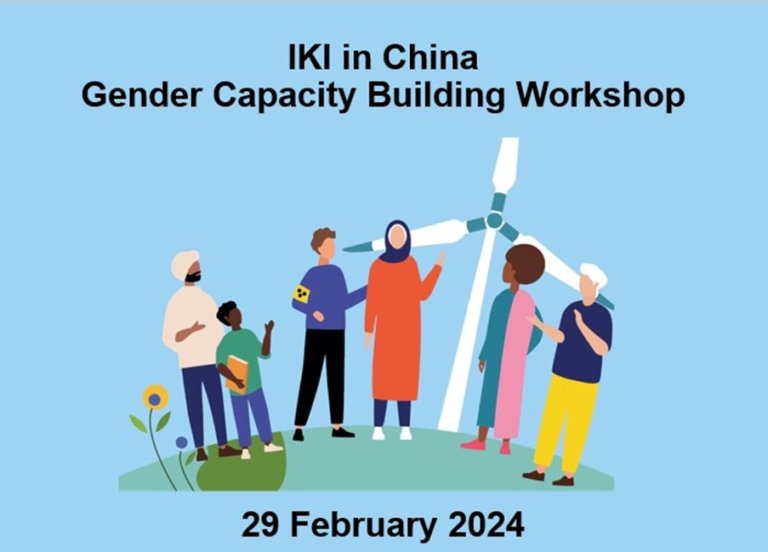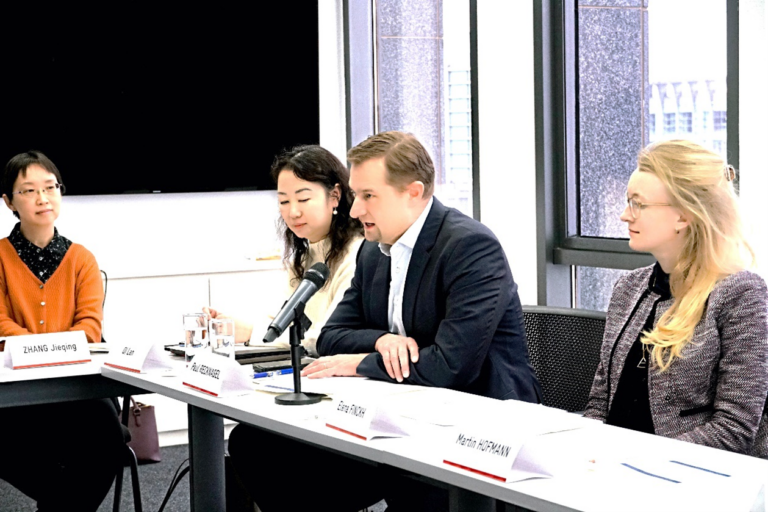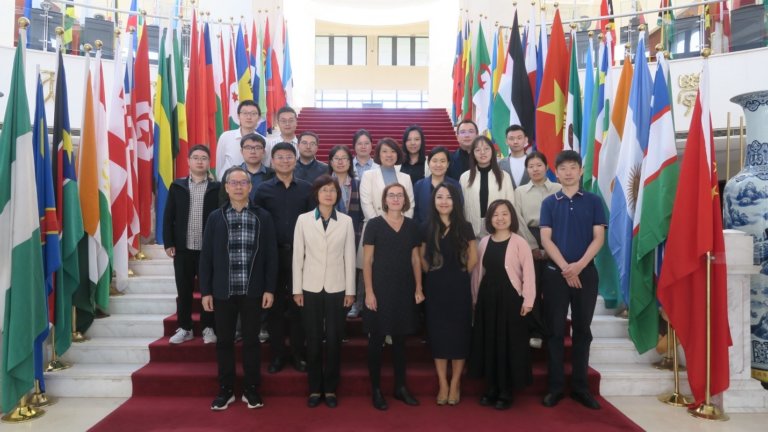The workshop conducted by Climate Analytics (CA) and GIZ China NDCI project in conjunction with representatives of the National Center for Climate Change Strategy and International Cooperation (NCSC) took place virtually on 15 December and featured participants from the Inner Mongolia Autonomous Region and Shandong Province.
The workshop was opened by Mr YU Xiaodong, Director of the Eco-environment Low-carbon Development Center of Inner Mongolia, who provided a brief input on the projects achievements and progress and introduced the participants. Mr Bill HARE, CEO of Climate Analytics, Dr Nandini DAS, Energy Research and Policy Analyst at CA, Dr Victor MAXWELL, Climate Energy and Policy Analyst at CA, Dr Pravakar PRADHAN, Energy System Modeller at CA, and Ms Sharna NOLAN, the head of Climate Analytics Australia gave presentations on modelling theories and practices in the field of emission reduction.
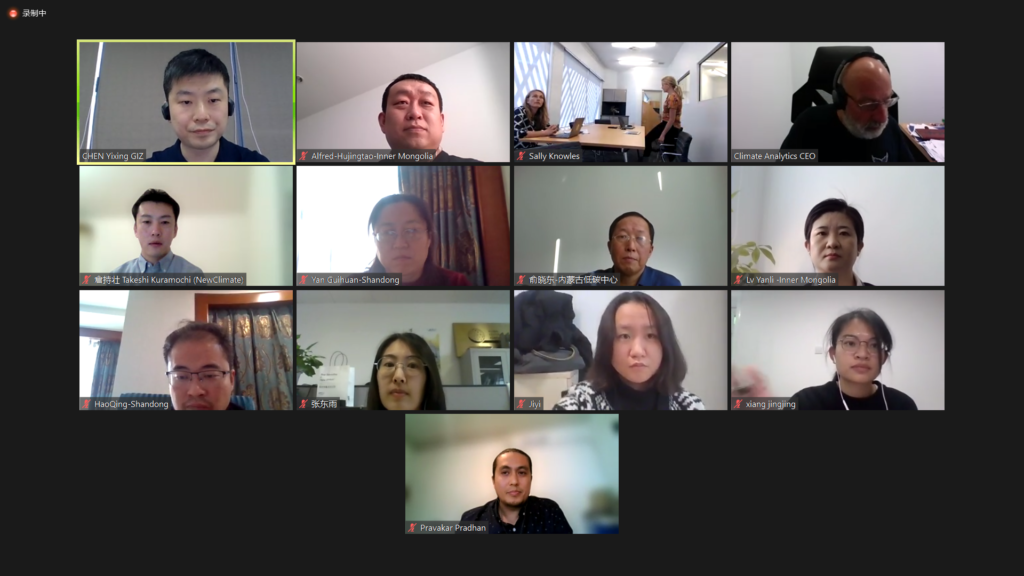
Whereas Ms DAS reflected on introductions to energy systems and whole-of-economy modelling theories, its modalities and what to think about when scoping your own model, her colleagues covered contemporary top-down and bottom-up approaches, their underlying assumptions and applications.
This section was concluded by a presentation of best practice examples of each of the above approaches such as the ongoing modelling Estonia’s decarbonisation pathways for the energy sector, and the analysis of a recycling carbon tax for inclusive green growth in India. The discussion allowed participants to go deeper into topics such as the application of different models (especially LEAP and CGE), the reflection of carbon tax and energy subsidies in Input-Output models, the application of the models to non-CO2 GHG and the model’s predictive capability of future emissions.
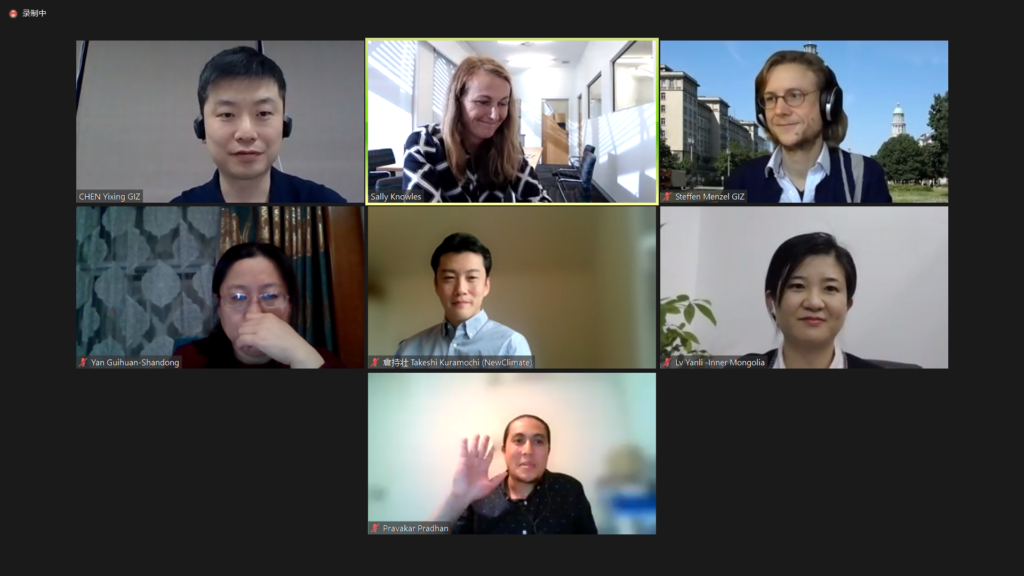
The second part of the workshop dealt with the exemplary modelling of a CO2emission scenario.
First, participants and workshop hosts unpacked a 4-step process to build an emissions pathway for sector, national or subnational scales: 1) Determining country context and needs, 2) Developing baseline pathways, 3) Building an alternative scenario, 4) Socialising pathway results. This session enabled participants to have a variety of approaches at hand to build emissions pathways at a range of scale and understand the main inputs and outputs, as well as their application in real work situations. Furthermore, participants were given an understanding of the main attributes of global scenarios and best practices. Subsequently, participants were asked to reflect on their own needs and draft a concept note to scope a research question and approach to understanding emissions in an area of interest. Based on workshop materials, they were able to define a feasible approach and inform future work or capacity-building opportunities. After this practical exchange, Mr Steffen MENZEL, team lead and director of the NDC implementation project, shared final remarks and reflections. He specifically addressed the value of open exchange such as in the workshop. Follow-up meetings to address participants’ questions and needs were agreed upon. The next session with experts from Climate Analytics is scheduled for 7 January 2022.
